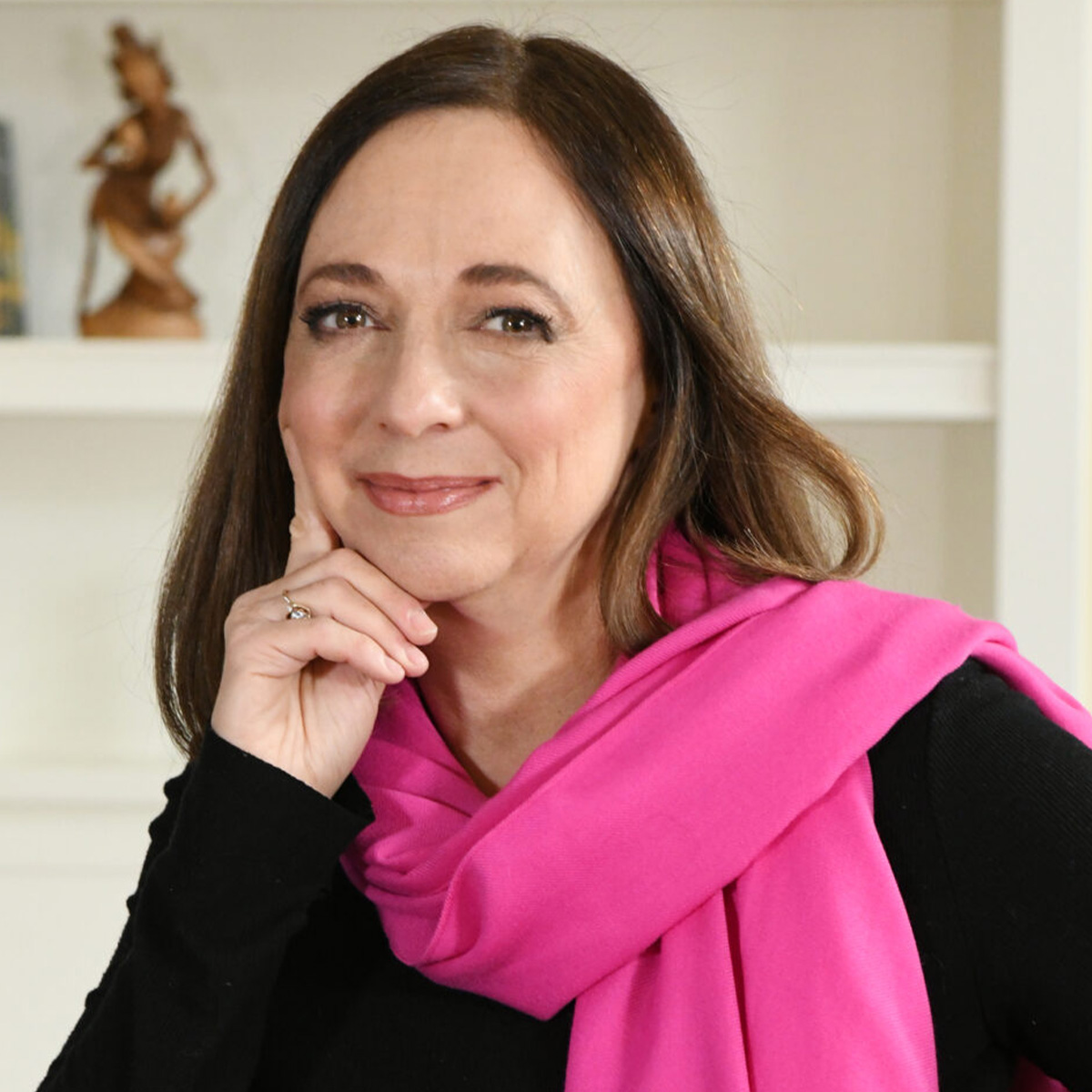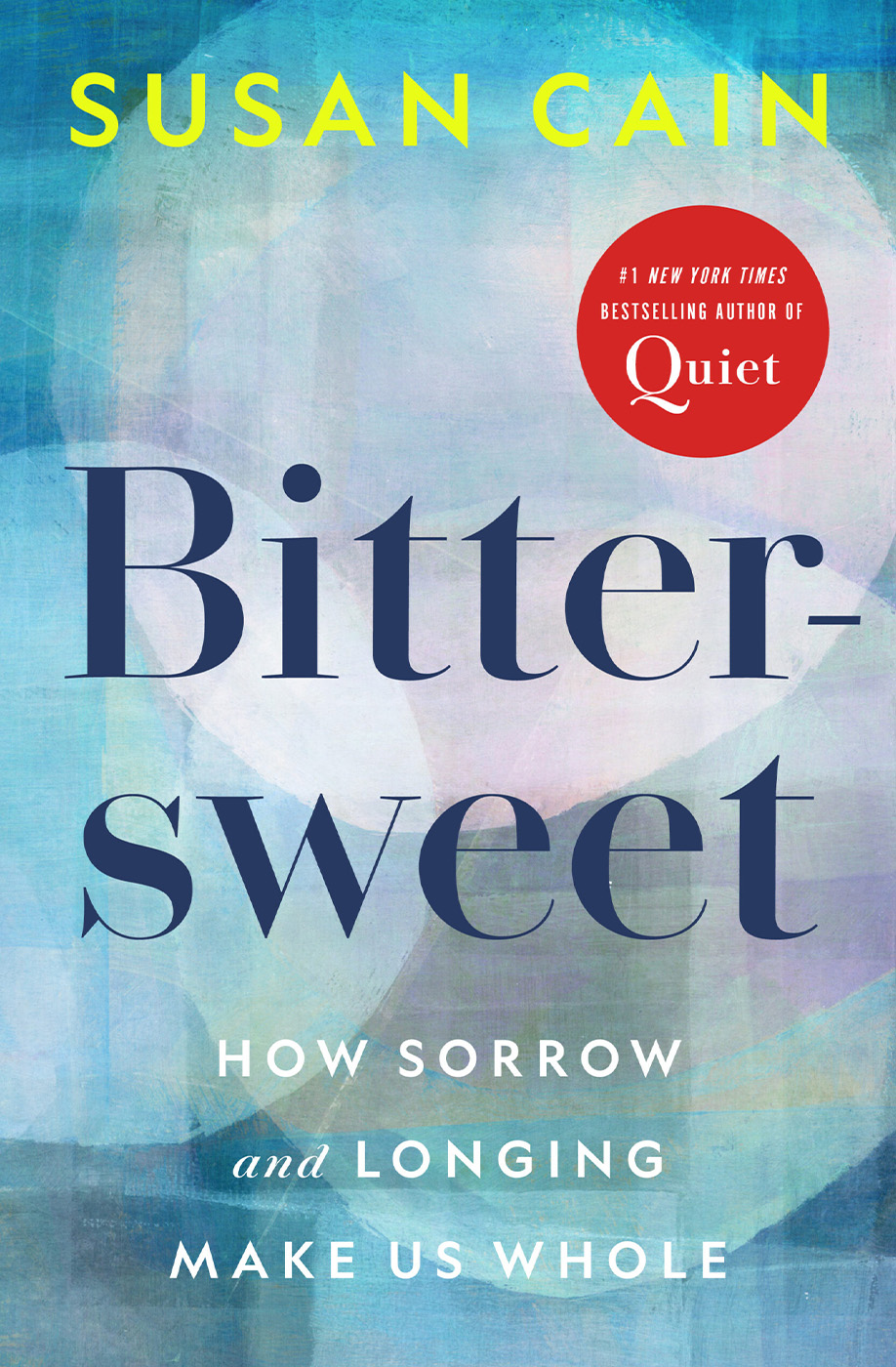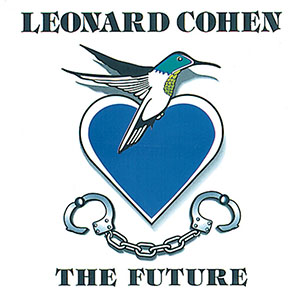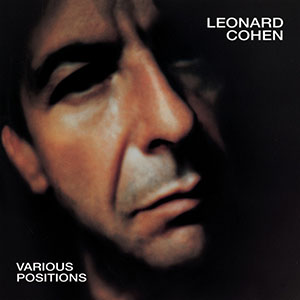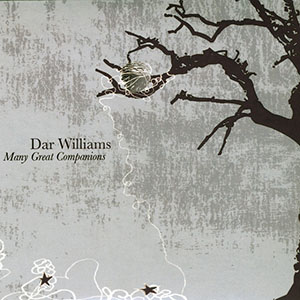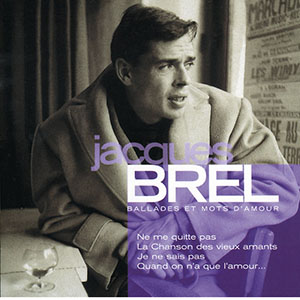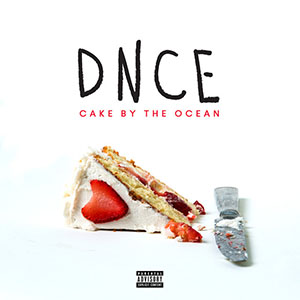Brené Brown: Hi everyone, I’m Brené Brown, and this is Unlocking Us.
[music]
BB: Part two, Susan Cain. That first conversation, the first part of our conversation. So good. Susan’s new book, Bittersweet: How Sorrow and Longing Make Us Whole is just giving me life right now. It actually comes out on April 5th, so we’re right here. If you haven’t heard the first episode, I highly recommend that you listen to it. It’ll really set the table for this conversation, and I can tell you I could talk to Susan all day and sometimes on text, I actually do, as someone again, who scores off the charts on the bittersweet scale, this is my love language right here. Stay tuned for another great conversation about that feeling we all know. God just… Dropping our kids off at college, first day at kinder, sick relative. It’s just life. It’s life, and there’s something so inherent in bittersweetness about the passing of time. And I haven’t known what month we’re in for the last two years, so to me, I can’t make time go fast enough on some days, and on other days, I’m trying to claw it back. I’m glad you’re here for this conversation.
[music]
BB: Before we get started, let me tell you a little bit about Susan. She is the author of Quiet: The Power of Introverts in a World That Can’t Stop Talking, another book that really, I thought to myself when I read Quiet, “Oh, this is it. This is who I am.” This is why when people say… My family’s like, ‘What would you like for your birthday?’ My answer is, ‘Alone time.’ This is it.” Quiet spent seven years in the New York Time’s best seller list. It’s been translated into 40 languages. Susan’s TED talk has been viewed over 40 million times. Susan partners with Malcolm Gladwell, Adam Grant and Dan Pink to curate the Next Big Idea Book Club, they donate all the proceeds from the book club to children’s literacy programs, and we’re talking about her new masterpiece, Bittersweet. Let’s jump in.
[music]
BB: So I want to pick up where we left off, and I want to pick up with this question about how a nation founded on heartache and courage really, in some ways, became a nation that ironically is now driven by kind of… a lot of toxic positivity, false positivity and fear, what’s your take?
Susan Cain: Yeah. So my take is that the roots of this nation… Let’s see. Well, religiously, it was a Calvinist nation, and the tenets of the Calvinist religion were that Heaven or Hell were… Bear with me here, because I’m going to get to current times in a sec. Okay.
BB: I love it, no, go take us.
[chuckle]
SC: Okay. So the tenets of Calvinism were that you were already pre-destined for heaven or hell, there wasn’t exactly that much that you could do about it, but what you could do was show by how hard you worked and how virtuous you were, that you were one of the people who was destined for heaven. And over time in the 19th century, that kind of transmogrified as we became a more and more business-oriented society, and that kind of transmogrified into wanting to show in general that you were a winner. So the ideal of heaven in an everyday sense was replaced by the ideal of success, of material success. And how did you show that you were materially successful? Well, it was by being a business person, by winning. And the way that you did that, if you were going to be a winner, you had to show that you had the emotional traits of a winner.
SC: And so we went through this period, as part of something that was called the New Thought movement, we went through this period where all of a sudden the idea of expressing any kind of worry, any kind of doubt, any kind of negative feelings, anything other than cheerfully whistling through hardship, which is what Boy Scouts were taught to do explicitly. Anything other than that was seen as being the sign of being a “loser”, so fast forward to the Depression in the 1930s, where all these business people and everyday people are becoming bankrupt through forces having nothing to do with themselves, but there became this question all of a sudden that if you went bankrupt, if you lost, was it the problem of the system or was it some kind of mysterious flaw in the soul of the person who had lost? And increasingly, we started to believe that the problem lay inside the person who had lost. And so if you look back at the era of the Depression, there are all these headlines that would say things like, “Loser commits suicide.” A kind of excoriation of the people who were suffering. And then if you trace it through the 20th century, the word loser becomes used more and more and more and more.
BB: God, I hate this word.
SC: Yeah, exactly. And it’s such an awful word, it’s such an awful word. But we use it all the time. And it no longer means somebody who has lost, someone who has happened to lose something because fortune didn’t smile on them. Now it’s like, there’s something in you. So you better act like a winner in order not to be that terrible thing. That’s kind of what happened in a nutshell.
BB: God, that’s so fascinating. You can only imagine that we have an exclusion list of words not allowed in my house. As a shame researcher. And loser is at the top of that list.
SC: Absolutely. It’s such a noxious word. I think there’s a lot of people who might not like the word loser, but then we find other ways to talk about it. So one of the things that I did in my research, I went back to Princeton where I had been in undergrad, and during the time that I had been a student there… Princeton’s a very shiny and glamorous place. And it had always seemed to me that other than the close friends I had, where we would confide stuff in each other, it had always seemed to me that everybody there totally had their act together. They had already arrived wherever it was they were supposed to be in life. They were there already at the age of 19. And I decided to go back there as an adult and just see what the students might tell me. And I will say this as a writer, it’s like an amazing thing that you can show up with a journalist notebook and ask questions, and people will talk to you.
BB: Yeah, they will.
SC: So I went back there, this was just a few years ago. And I started asking the students what their lives are really all about. And I swear, it took literally less than two minutes and they all start talking about this phenomenon called “effortless perfection,” effortless perfection, which is a common phrase among college students. I know you know this, and it refers to the need to present as beautiful or handsome or whatever, thin, fit, socially adept, great grades, the whole works, you’ve got it all. And not only do you have it all, but it all came effortlessly. So no one should ever see you sweating to actually achieve all these things. And this word rose to prominence at a time when we were starting to see this rash of students who were dying by suicide two days after they had posted an Instagram photo of them surrounded, smiling by all their friends, and you start realizing well, okay, that’s really the situation right now. I feel it’s a continuation of that tradition we were just talking about from the 19th century and into the Depression, “Do not be a loser at any cost,” and that’s what’s behind a need to be effortlessly perfect.
BB: How do you think effortless perfectionism and this idea of being a loser, what happens if you’re on this moving escalator of effortless perfection and you encounter, as we all do, pain?
SC: We don’t know what to do with it. We don’t know what to do with it. We have our own pain and we think that there’s something wrong with us. We see other people’s pain and might suspect that there’s something as our tradition holds it, that there’s something in them that is causing the pain. I’ll give you an example of how this plays out. And this is an example from one of the deepest pains of life, which is bereavement. So I talk in the book about the work of Susan David, who’s done a lot of work on negative emotions and Susan’s story is that she’s this amazing, amazing psychologist and a dear friend of mine. And her story is that when she was a teenager, she lost her father to cancer. And she grew up also in a culture that, they didn’t use the word effortless perfection, but that’s basically what it was. And so she was encouraged… On the day that her father died, she was encouraged to go and say goodbye to him, and then to go off to school with her satchel and sit through math and history and biology and all the rest of it.
SC: And when she got home, he was gone and she was encouraged to say that she was okay. And Susan’s a very cheerful up for anything type of person, so that’s what she did. And she was okay. And that’s what she told everybody for the whole rest of that year, except that she was secretly vomiting up her food and not talking about that either. And all of that kept going and going and going, and maybe it would have continued thus, except that she had an English teacher who passed out blank notebooks to the class and said to them, but looking directly in Susan’s eyes, said to them, “Write down whatever you’re thinking. Write down whatever you’re feeling. I’m not judging, it’s all up to you.” And that was the first time that Susan wrote what she actually felt when she wasn’t being “effortlessly perfect”. And she describes that experience as a revolution in her notebook, because that was the first time she could actually come alive to what she was truly experiencing and that’s what healed her.
BB: So we just walked right in from one of my favorite people to another one of my favorite people. Jamie Pennebaker.
SC: Yes.
BB: Yeah. And his work, talk to us about his work. So Jamie’s at the University of Texas at Austin, I’ve written about him in several books, and we had Susan David on the podcast talking about toxic positivity.
SC: Right.
BB: And she’s also featured in Atlas of the Heart as are you. I have to say that you are one of the experts we bring in to Atlas of the Heart, the HBO show. And I’m looking at my sister because she was there. I mean, people could not get over the Bittersweet. Your piece, I mean, we couldn’t get off of it. We ended up talking about it after you came into the show and explained Bittersweet and we showed some Bittersweet film clips. And I think that conversation went on for how long two hours? The audience couldn’t stop talking about it.
SC: Oh, my gosh.
BB: No.
SC: Wow.
BB: This book is going to be a revelation for people. People were like, “Oh, it’s okay? Did Susan Cain just say it was okay?” And I said, “I don’t think she said it was okay. I think she said it was beautiful.”
SC: Yes. That’s right. It’s beautiful.
BB: You know? I think she said it was beautiful and it was just… You should have seen people in the audience after you spoke to them.
SC: Oh, my gosh. Wow, I wish I had been there.
BB: Let’s talk about Jamie.
SC: Okay. So Jamie Pennebaker, researcher at University of Texas, I think it is, right?
BB: Hook ’em. Yes.
SC: Okay. Yeah. So he has done this groundbreaking series of research that you just kind of can’t believe. It’s like the results are so astonishing that you think surely this can’t be true, but it’s true. So this research, he basically discovered the power of writing down the things that bother you. That’s it. The power of doing that. And so I’ll just give you an example of some of these studies. He looked at this one group of 50-year-old laid-off engineers who are having trouble finding new work and they’re really depressed about their situation, and he asks half of them to write down what they’re feeling, and half of them to just write down what they’re wearing that day, let’s say. And it turns out the half who write down what they’re feeling are… I’m forgetting the exact statistics, say some huge percentage more likely to get work within the next several months than the ones who just wrote about their shoes. And they have better health records and everything about their lives is going better.
BB: Real medical indicators.
SC: Real medical indicators, lower blood pressure, the whole works. And you think how can that possibly be right? Except there is something about the expression of these things. I think what’s really happening is that when you write down what’s happening, you are transforming it in a certain kind of way. You’re not taking it as a static thing, you are transforming it into something else. This is why I say we are deeply creative creatures who are born to take all the crap that life is going to give us and transform it into something else, and that’s what we’re doing when we’re writing things down in our diaries.
BB: I believe it.
SC: Yeah, and I think that’s why that story that I told you at the beginning about those diaries I always kept when I was a kid?
BB: Yes.
SC: That got me into so much trouble with my mother, but I really needed them. I really needed them. And I’ll tell you the crazy thing about those diaries is that I kept them for years, and I carried them around with me in this beat up red JanSport backpack with a little combination lock on it so no one could open it up. And you know how when you’re that age, teenage, early 20s, you’re constantly moving from one dorm room to…
BB: Oh, God, yes.
SC: Apartment to another. So everywhere I went, every single move, I carried that red backpack with me, except one day I just forgot it, and I don’t know where the backpack is, I just left it behind in one of those moves, and I don’t have it anymore. And it’s gone.
BB: What?
SC: Yeah, but all my tumultuous adolescence, it’s all vanished somewhere. And there’s a part of me that would love to have it to just be able to remember things that my memory no longer has access to, but there’s also a part of me that just doesn’t need it anymore. And that’s what Jamie Pennebaker’s research says. It’s not that you’re writing for publication, you could write it and then tear it up the next minute, it’s the act of writing it down where the magic happens.
BB: I’m always slow to use this word as a researcher, but there’s an alchemy to the writing.
SC: Yes.
BB: There is, whether people like it or not, there is an alchemy to the writing, and it comes up in my research over and over and over. When we talk about the stories that we make up in the absence of data and how they really leverage our biggest fears and shame triggers, and, “Susan didn’t text me back and she’s mad at me about something, and what did I say?” And 70% of the people who work through those stories in a really productive way, write them down.
SC: Yeah. Yeah. There is something about that. And you know what I worry about so much? For kids, adolescents who are coming through now, they are growing up in a world where they’re conditioned to assume that everything they write will somehow be read by someone.
BB: Oh God, yeah, it’s true.
SC: Or that it should be. Like that it’s all performative.
BB: It’s performative. Yeah.
SC: Yeah, and it’s like that high goal of telling the truth of what it’s like to be alive, I don’t think we can really do that if we don’t allow ourselves a first and second and third pass that’s not going to be read by anybody.
BB: Amen.
SC: Yeah, right?
BB: Yes.
SC: And then you decide what you’re willing to share, and that’s okay too. Because I know you’re the queen of teaching boundaries, so it’s okay to decide there are some things you’re not going to share, but to be able to first go through that moment and it might be years worth of writing that you’re never going to share. That’s okay.
BB: Yeah, because ultimately it’s for you. It’s for your own healing.
[music]
BB: All right, tell me what you’ve learned about bittersweetness that’s changed you, and what you hope for us as we fall into this book?
SC: What I hope for us, for you, for us, for all of us is just, if you’re a bittersweet person, you’re going to see the potential for sorrow in a joyful scene. You’re going to look at a beautiful July flower and know that how impermanent it is and be aware of that. But the flip side of that is you’re also going to look at the painful times and understand that that’s impermanent too, that famous Leonard Cohen line about, “there’s a crack in everything, that’s where the light gets in.” That’s what bittersweetness gives us, and especially for all of us now, we’re passing through these incredibly terrible, dark times now as we record this, and my instinct is that we will be facing other kinds of darknesses over the next decade, and so what I want people to understand is that that’s part of what life is, but it’s not the full side anymore than all joy is the full side. So as we’re passing through the darknesses the light still gets in. I want everybody to know that at these moments.
BB: One road, huh? One road traveled together.
SC: Yeah, it’s one road traveled together, exactly. And to be open, and it keeps shifting all the time. If you pass through grief, let’s say, if you’re in a moment of bereavement, there’s this really curious thing that you start to notice. You’re in mourning but then you laugh, and then you’re in mourning again, and then you have a really fond memory of the person and it doesn’t hurt so much, and then the next day it does hurt again, and you start realizing, “Oh, this isn’t actually the story that I thought grief was going to be.” It’s not all one thing. Nothing is all one thing. Especially through these times that we are weathering right now, I think that’s very helpful to remember. And I forgot what your other question was, I’m sorry.
BB: No, that’s it. I just love this book, I just… Yeah.
SC: Can I just tell you one other thing that I just want to share along those lines?
BB: I would love it. You know.
SC: Okay.
BB: You know.
SC: So you know that as part of this book, I kind of went combing through the wisdom traditions of the world to see what they had to teach us about all these questions, and one of the teachings that I find myself returning to again and again, it comes from the Kabbalah, which is the mystical branch of Judaism. The teaching that I love is that originally everything was one unified divine vessel. It was all light, everything was light, but then the divine vessel shattered, and the world that we are living in now is the world after it shattered, but with these divine shards of light scattered all around us. They’re buried all around us, everywhere you look. And from this point of view, the job in life, the task in life is to pick up the buried shards wherever you can find them. And you, Brené, and you, to everyone who is listening right now, you’re all going to see different shards from the ones that I would find or that you would find or that they would find, we all see different ones, but that’s the task. And I find that just incredibly helpful because even when you happen to be passing through your darker times of life, the shards are still there somewhere.
BB: God, and I love that they’re called shards.
SC: What do you love about that? Say more.
BB: Because they’re pointy.
SC: Right?
BB: They are born of brokenness.
SC: Yeah.
BB: And you’ve got to pick them up with reverence, you can’t grab them and close your fist around them to hold them forever, because they’ll cut you to pieces. You have to pick them up and admire them and be with them, but you don’t own them and they’re from something else, I love that. It’s like one of the things that people find so hard to get their heads and hearts around from our research is that the most vulnerable emotion that we experience as humans is not grief or shame or fear, it’s joy. Joy is the most vulnerable emotion.
SC: And why is that?
BB: Because we’re so afraid to let ourselves feel it, because of its impermanence, and we’re afraid that if we lean into it, someone might take it away and we’ll be blindsided by pain.
SC: Right. Right. Okay, I’m so glad you said that. Maybe using a different language to say the same thing, I believe it’s so possible to get past that.
BB: Oh, I do too.
SC: Yeah. I know you do.
BB: How do you personally get past it? Because you’ve got kids and, we call it foreboding joy. So foreboding joy comes in big quantities when you’re a parent. For sure.
SC: Totally, totally. And that was exactly the first thing that I thought of when you started talking about the joy and the fear of impermanence that it elicits in us, I thought about children. I actually, over the last couple of years, I started doing the stoic practice, which I may be mispronouncing, but it’s called memento mori, and the idea is to remember impermanence, to remember death at all times, which I know sounds really morbid and gloomy, and I promise you, it’s not really that. It’s more like using it to become accustomed to it and to be constantly attending to how precious everything is. So for me, with my kids, now they’re a little too old for it, but we used to have this bedtime ritual where I would tuck them in and all that. And I have to admit, I used to struggle, especially when I was in the middle of a heavy work period with not checking my phone during that bedtime ritual. And then I started doing this practice. And I really didn’t hold back, I thought, “You may not be here tomorrow. They may not be here tomorrow. You don’t know, you don’t know.” And the minute I felt that, the phone went down, with no effort, and then very shortly after I started doing that, the phone was in another room and I had no desire for it anymore.
SC: And this isn’t to say if, God forbid, tragedy struck, I will be blindsided. It’s not to say like, “Yeah, you’ll get to peace.” But I do feel like it helps you just embrace the joys that you have in a really whole way while holding the fear at bay because you’ve normalized it. It’s that word that we keep coming back to in this conversation, it’s like the normalization.
BB: You know what, the opposite in our research on the continuum, the opposite of normalizing impermanence, normalizing death, normalizing grief, normalizing sorrow. The opposite of that is pathologizing.
SC: Right.
BB: Pathologizing grief, pathologizing sorrow. This goes back to your lose… Your history of losers.
SC: Yes.
BB: You know something is wrong with you.
SC: That’s right, that’s right.
BB: Right, and it’s interesting because I find that… majority of people that we interviewed, that when you’re sitting with your kids and you’re tucking them in, or I’m… Ellen’s 22 now and Charlie’s 16, so there aren’t moments of tucking in, there are moments of watching them drive away.
SC: Literally drive away.
BB: Literally drive away. And one of the things I learned, because I used to have a really massive foreboding joy problem. I would catastrophize. I’m a very visual person, so I’d see, I’d play the whole accident, the call from the… You know, I just do this… Work myself into like… Basically like almost secondary trauma. And then when I was doing the research, what I realized, it’s not far from the stoic practice really, is the people that could feel the quiver of vulnerability during deeply joyful moments, but use the quiver as a reminder to be grateful rather than a reminder to dress rehearse tragedy, it was the gratitude piece. It was the, “This is this moment, and you’ll never have this moment again.”
SC: Absolutely, absolutely.
BB: Yeah.
SC: Yeah, yeah. And are you familiar with Laura Carstensen’s research also?
BB: I don’t think so.
SC: She’s a Stanford professor. Oh my God, it’s so interesting. She writes about the psychology of older people, and she has actually found that the elderly… We have this myth of them having a very terrible time of it, and obviously old age presents all kinds of challenges, but she has found that the elderly tend to be happier and more full of gratitude, more invested in depth relationships, less prone to anger, more prone to states of well-being. And she has linked all of that with the fact… She says it’s not that, as we might think, that once you get older, you’ve acquired all this wisdom from all the years that you’ve lived. She says it has nothing to do with that. It only has to do with the fact that when you’re older, you have a sense of life’s fragility. You know it’s coming to an end.
BB: Oh God, that’s so true.
SC: And so, she’s found that younger people who also for other reasons are in fragile situations. She studied students in Hong Kong who were worried about Chinese rule at the end of the 20th century, they had the exact same psychological profile as older people did, because the constant was the fragility.
BB: Wow. God, I love talking to you. I really do.
SC: I love talking to you too.
BB: Okay. You ready for rapid fire?
SC: I am.
BB: Rapid fire, let’s go. Susan Cain, fill in the blank for me. Vulnerability is?
SC: Being able to be real and telling the truth.
BB: Yeah. What is something that people often get wrong about you?
SC: Well. During all the years that I was the quiet person, I think people then would be surprised that I would be out there giving talks or socializing or whatever it was, and I’m sure the same thing is going to happen now that I’m talking about bittersweetness, they’ll be like, “Oh my gosh, she laughed or I don’t know what they’ll say [laughter] But it is a really weird phenomenon of how you can…
BB: Yeah.
SC: Be seen through the particular lens of what you chose to write about, so I feel that a lot.
BB: Oh, for sure. People are always like, “Oh, you’ve had shame, I’m like, oh my God. Yes.”
SC: Yes. And I remember you talking… We were at TED one time, and you gave a talk, and I remember you describing the experience of first becoming known to the world through your first TED Talk, and you said you’d be in the grocery store or somewhere and people would come up to you and be like, “Vulnerability TED.”
BB: Yeah, that’s what they’d say.
SC: And that was how they knew you…
BB: Yeah, that’s it.
SC: Yeah.
BB: Yeah.
SC: And didn’t that feel so weird.
BB: Yeah.
SC: Yeah.
BB: Because I mean, trust me, zthe thing that I am the representative for vulnerability is the irony in the world. Okay, I’m so curious about the answers here. Ready?
SC: Okay.
BB: The last TV show that you binged and loved?
SC: Oh, gosh. Well, right now, I’m binging with my family, OverSimplified, OverSimplified. My kids have become fascinated with history, I think, because we all now know that we’re living through it, so…
BB: Yes.
SC: They really want to know about history, and so OverSimplified is this amazing YouTube channel that tells you about all different historical periods in a way that’s interesting to kids and adults, and we binge-watch that.
BB: Oh my God, I’m so excited. I’m going to watch it. I haven’t heard of it.
SC: It’s so good, it’s so good.
BB: And I love history. Okay, favorite movie?
SC: I have to tell you, I’m terrible at these dinner party parlor game questions…
BB: Yeah, yeah.
SC: What the heck is my favorite movie. I don’t know, Breakfast at Tiffany’s is coming to mind. I love that movie.
BB: You do.
SC: Which is the ultimate bittersweet movie, if you think about it. So you see…
BB: Oh my God.
SC: I’ve always been on this beat.
BB: You have, I mean, “Moon River,” come on…
SC: “Moon River,” Exactly.
BB: Yeah. A concert that you’ll never forget?
SC: Oh, now that one’s easy for me, that is the final concert tour that Leonard Cohen gave when he was in his 80s. Actually, you know what, I’m not even going to say that. I’m going to say it was the memorial concert for Leonard Cohen that was given a year after he died, it was put on by his son, famous musicians came from all over the world to Montreal. Am I supposed to be rapid fire or should I tell the story?
BB: No, go. Go, no.
SC: Okay. Okay, it was all the way in Montreal. We live in the East Coast of the US, and my husband was like, “You know you should really go to the concert.” And I felt ridiculous, but the whole family got on a plane and we went to Montreal like on a random Monday afternoon. Yeah, and I felt so badly, like dragging the whole family and canceling my meetings to do this, and I get to the concert, and at first I’m feeling this terrible disappointment because it’s all these other musicians who are singing the words of this musician who I have loved so intensely for so many years. And I start writing things down, the way I always do. I’m writing to myself, “This was a waste, and I shouldn’t have come and I’d rather be at home sitting and listening to Leonard still on YouTube and just hearing it all through his own voice.” And then onto the stage comes this musician, Damien Rice, who sings one of Leonard’s best songs, “Famous Blue Raincoat.” And at the end of it, he adds to the way Leonard Cohen had always sung it, he adds to it his own musical riff, which is expressing this really deep, naked lamentation, that’s the only way I can describe it. And he’s standing there in front of the audience and he’s just singing these notes, and everybody just rises silently to their feet.
BB: Wow.
SC: And that was one of the most profound moments of my life. It was like the communion in that stadium, because it was in this gigantic stadium, the communion, I will never forget it.
BB: You know what Émile Durkheim called that?
SC: What?
BB: Collective effervescence.
SC: Yes, yes.
BB: I first saw it when people were in sacred rituals together, which this was…
SC: Exactly.
BB: A sacred ritual…
SC: This was a sacred ritual. Yeah.
BB: And he thought it was magic when he first observed it, so he started calling it, “Collective effervescence”.
SC: Yes, I love that phrase. It’s so good. It’s so good. Yeah, and afterwards, the next day, I actually started looking at all the reviews of the concert to see if everyone else had experienced it the same way that I had, and they all did [laughter] They all did. It was just this moment. You couldn’t not notice it.
BB: It was your shard?
SC: Yes, it was a shard. It was a shard. Oh, and speaking of shards, I’m just going to say, the more you become aware of the phenomenon of shards, the more you see them everywhere.
BB: Yeah it’s like red cars.
SC: Yes, exactly. It’s exactly like that. Yeah. Now you’re going to walk around all day and be like, shard, shard, shard…
BB: Shatter glass.
SC: They’re all over.
BB: People are either listening to me like, Yes, I get this or they’re like the two of them are nuts.
[laughter]
BB: Join us. Okay, what’s one of your favorite meals of all time?
SC: Chocolate, and I do not ever spend a day without chocolate. Never.
BB: Perfect. What’s on your nightstand? I was just curious about this.
SC: Oh, my night stand has a stack of books that I want to read and have not, and… Yeah, that’s what it has.
BB: What’s one thing that you are deeply grateful for right now?
SC: My family. Yeah. Just greatest gift in the world.
BB: Describe a snapshot of an ordinary moment in your life that gives you joy, describe a shard for me, an everyday shard.
SC: Oh, okay, I’m going to show you one right now.
BB: I love this.
SC: Okay. This is… It’s really hot, I’m about to burn my fingers, but this candle that I have here. I love, love, love the act of working. I love my work so much, and I love it for its own sake, but I feel like part of the reason I love it is that I have trained myself over the years to associate it with other things that I love, so I love drinking lattes and I only drink them while I work, and I come into my office and every morning, the first thing I do is light this candle whose scent I love, and I have my little chocolate chips and I love those also. And I have my poetry taped up on the walls all around me, and… Now, I forgot the question, but yeah.
BB: It’s a snapshot of an ordinary moment.
SC: It’s a snapshot, yes.
BB: But you answered the question perfectly.
SC: Okay, well, there you go.
BB: Yeah, I can smell it and taste it. All right, we put a mini-mixtape together for you of five songs you can’t live without. You gave us “Anthem” by Leonard Cohen, “Hallelujah” by Leonard Cohen, “After All” by Dar Williams, “La Chanson Des Vieux Amants,” Oh my God.
SC: Yes.
BB: The hardest song in the whole world.
SC: I know.
BB: Jacques Brel. And for the last one, it’s a tie between “Cake by the Ocean”… How do you pronounce that? The name of those folks? DNCE?
SC: I have no idea. I have no idea, but it’s DANCE without the A, I guess.
BB: Okay, so “Cake By the Ocean” by DNCE or “Me Gustas Tu” by Manu Chao. Is that how you pronounce it?
SC: Manu Chao.
BB: Okay. In one sentence… I always have to give this caveat to writers, no semi-colons, and dashes, no run-ons. In one sentence, what does this playlist say about you?
SC: Joy and sorrow because…
[laughter]
SC: For real. For real, Because the first songs that I gave you are all about the beautiful brokenness of existence, and then the other… Oh, you said one sentence. God. I can’t do that.
BB: Go ahead. I’m going to let you break the rules because you’re one of my favorite people.
SC: “Cake By The Ocean” and “Me Gustas Tu” are the happiest dance music you will ever hear, and it’s what I play every time I want to feel pumped up about something, I just go to those songs.
BB: So your playlist is joy and sorrow?
SC: Yeah. It is.
BB: Thank you so much, Susan, for being with us. And this book is… I said it in the blurb, and I’ll say it here, this book grabs you by the heart and just hasn’t still not let me go. And it’s been months since I’ve read it.
SC: Thank you so much for that and for having me here, and especially just for being you and for your work in the world, which is just the greatest gift, we are all so lucky for it. So… Thank you.
BB: Thank you Susan.
[music]
BB: All right, guys, a couple of things. First of all, we love Susan, right? Just this is the Unlocking Us Susan Cain fan club. You can find all the links to her and her work on brenebrown.com under the episode page for Susan. Her website is quietrev, like Quiet Revolution, but just quiet quietrev.com, and she’s on all kinds of social media, you can find the links and are y’all ready? It’s almost here. Tomorrow, the Brené Brown: Atlas of the Heart HBO Max series drops on HBO Max. I don’t know how I feel. It’s not bittersweet, it’s that weird combo of scared, excited, but mostly anxious. We launched the five-part series at South by Southwest, we premiered it. It was really weird to be at a premiere… Period, the hard stop. I’ve never been to a premiere, much less one where, “Oh shit, that’s me.” It’s exciting. I can’t wait to hear what you think. Oh, and speaking of, I need your help. Do you have any Atlas of the Heart questions? If you’ll go to the episode page for Susan, there’s a link to where you can ask a question, I’m going to do a two-part podcast on just answering community questions. I can’t wait to do that. So please go to brenebrown.com then the episode page for Susan Cain and you will see a link to where you can leave your question. I appreciate you being here, grateful to you, y’all stay awkward, brave and kind.
[music]
BB: Unlocking Us is a Spotify original from Parcast. It’s hosted by me, Brené Brown. It’s produced by Max Cutler, Kristen Acevedo, Carleigh Madden, and Tristan McNeil, and by Weird Lucy Productions. Sound design by Tristan McNeil, and music is by the amazing Carrie Rodriguez and the amazing Gina Chavez.
[music]
© 2022 Brené Brown Education and Research Group, LLC. All rights reserved.




